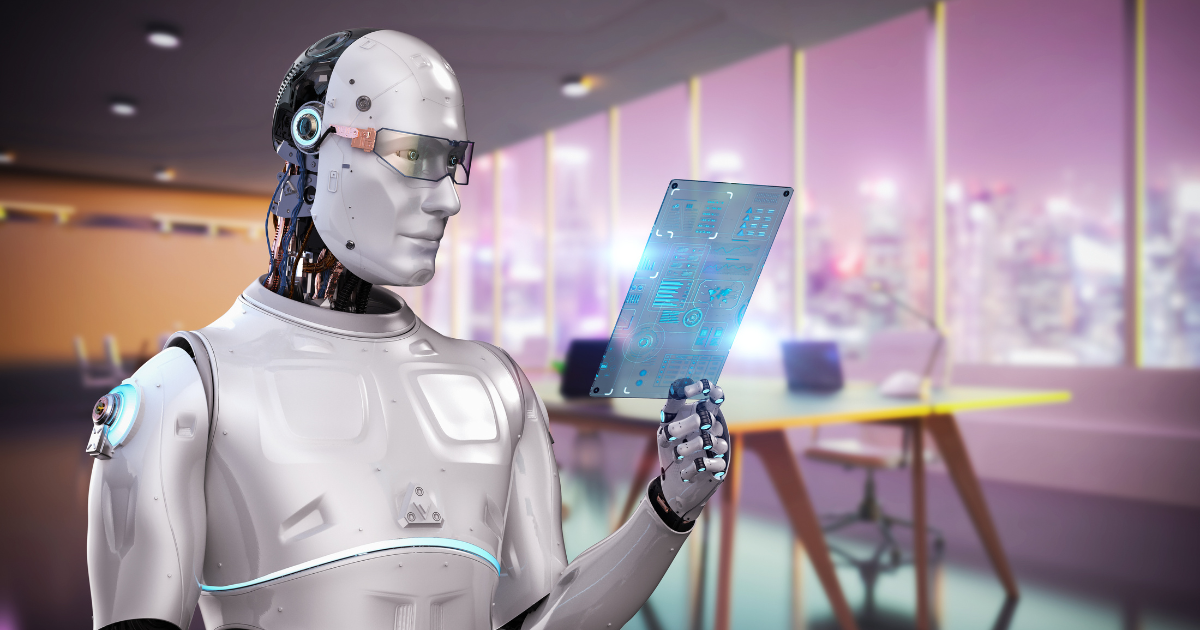How Back-Office Automation Helps Businesses Fight Inflation
Inflation, characterized by a general price increase and decreased purchasing power, threatens businesses worldwide. With the rising cost of living, businesses are looking for ways to cut costs and fight the pinch of inflation. One area companies are exploring is back-office automation, an innovative solution that automates repetitive and time-consuming tasks, is transforming how companies operate. Continue reading as we dive deep into how back-office automation can be helpful in a company's arsenal to combat inflation.
Effects of Inflation on Businesses
Inflation presents a significant challenge to businesses in various ways, particularly impacting expenses and profitability. When inflation rises, the cost of goods and services also increases. This, in turn, results in higher operational costs for businesses. Raw materials, rent, utilities, and even labor become more expensive. Companies might have to raise their prices to balance the increased costs, potentially leading to decreased demand and decreasing sales volumes. In some cases, companies may need help to pass along the additional costs to consumers, squeezing their profit margins. So, the ripple effects of inflation can complicate the financial health of a business, shaking up its expenditure and profitability equilibrium.
Role of Back Office Automation
Back-office automation plays a pivotal role in modern businesses by automating routine, time-consuming tasks, enabling companies to focus more on their core operations and strategic planning. The benefits are manifold - from boosting productivity, streamlining workflow, and reducing human errors to improving data management. When mundane tasks such as data entry, scheduling, or billing are automated, employees can contribute to higher-value tasks, promoting growth and innovation.
Automation can also lead to more accurate and faster results, significantly increasing back-office operations' efficiency. This increased efficiency can translate into cost savings, an aspect especially beneficial in times of economic stress such as inflation. Ultimately, the significance of back office automation extends beyond mere cost and time savings; it also fosters a more agile, flexible, and resilient business model.
Back-Office Automation and Inflation
The interplay between back-office automation and inflation is underscored by two key factors: cost-effectiveness and efficiency. In periods of inflation, when costs surge, automation provides a counterforce by streamlining processes and reducing the need for labor-intensive tasks. It minimizes the use of resources and curbs unnecessary spending, making operations more cost-effective. The enhanced efficiency results in faster service delivery, fewer errors, and higher productivity, helping businesses maintain or improve their profitability despite inflationary pressures.
 :
:
How to Start Implementing Back-Office Automation
Implementing back-office automation is a strategic move for businesses combating inflation. Start with an audit to pinpoint repetitive tasks that can be automated. Then, select suitable automation tools based on factors like usability, scalability, integration, and cost. Ensure to educate employees about the benefits of automation and provide necessary training. Implement automation in phases, starting small and gradually expanding across the organization. Regularly assess and refine the system for continuous improvement. Remember, successful automation is an ongoing process that adapts to changing business needs and economic environments.
Future of Automation in an Inflationary Economy
In an inflated economy, the role of back-office automation is expected to become even more significant. The need for cost-effective and efficient operations will increasingly drive businesses to rely on automation. Experts predict a trend towards more sophisticated and intelligent automation tools that leverage technologies like artificial intelligence and machine learning to automate complex tasks, further boosting efficiency and cost savings.
Moreover, the future may see greater automation integration across all facets of business operations, creating a seamlessly connected and automated workflow. Plus, the trend of remote work, amplified by the global pandemic, is likely to persist, making cloud-based automation tools more prevalent.
Empower your Organization's Growth
Now is the time for businesses to audit their back office operations, identify automation opportunities, and implement suitable tools. Companies must stay agile and adaptive as we look towards a future of continued economic change. Investing in back-office automation today could be the strategic decision that ensures your business's sustainability and growth tomorrow.
Empower your organization's growth and success with robust technology. Balancing your business operations and IT infrastructure can be overwhelming, and having an internal IT team might only sometimes be feasible. Whether you're looking for a complete IT solution or need additional support for your in-house team, professional IT services can offer the proactive, reliable assistance you require.
Don't let technology hold you back - focus on your day-to-day operations while our IT experts handle your tech needs. Ready to take your business to new heights? Intuitive Networks is ready to help. Speak with one of our IT experts today!
AI in 2023 - Everything You Need to Know
Artificial Intelligence (AI) has taken center stage in 2023, proving to be a fleeting trend and a significant shaper of our modern world. Its remarkable influence is increasingly pervasive, extending far beyond tech circles and manifesting itself in various aspects of our everyday lives. From autonomous vehicles navigating our city streets to intelligent assistants making our homes more efficient, AI has become an integral part of our world. Understanding AI, its development, and its implications has never been more vital than it is today. This is due to AI's transformative potential for diverse sectors, including healthcare, education, finance, and more.
AI’s Key Concepts and Technologies
The story of AI's evolution until 2023 is nothing short of a technological odyssey. Starting as a concept in the mid-20th century, AI has become a cornerstone of our technical infrastructure. The current AI technologies and recent advancements fundamentally alter how we interact with the world. Among the key concepts in AI are machine learning, deep learning, natural language processing, and computer vision - each contributing unique capabilities to the AI arsenal. Machine learning algorithms have become more sophisticated, enabling computers to learn from data without explicit programming. Deep learning, a subset of machine learning, uses artificial neural networks to mimic human decision-making and learning abilities.
Meanwhile, natural language processing has dramatically improved, enabling AI to understand, interpret, and generate human language in a remarkably human-like way. AI systems can accurately identify and analyze visual data in computer vision, leading to facial recognition and automated video analysis applications. One of the notable advancements in 2023 is the rise of transformer models in AI, which have revolutionized language understanding and generation tasks. With these technologies, AI has not only matured but is also opening new frontiers of possibilities, shaping a future that once belonged only in the realm of science fiction.
AI Applications in 2023
In 2023, AI has cemented itself as a transformative force across various sectors. In healthcare, AI-driven solutions are aiding in everything from diagnostics to personalized medicine, enhancing the speed and accuracy of services while potentially revolutionizing patient care. In education, AI tools are personalizing learning experiences and streamlining administrative tasks. The finance sector has also seen a surge in AI usage, with advanced algorithms for risk assessment, fraud detection, and offering personalized financial advice. In transportation, we're witnessing the steady rise of autonomous vehicles, thanks to sophisticated AI systems. The retail sector, meanwhile, is leveraging AI for predictive analytics, personalized shopping experiences, and efficient inventory management. Even in entertainment, AI makes waves by developing sophisticated recommendation algorithms and AI-generated content. In each of these sectors, AI applications are solving complex problems and reimagining how these industries function, pointing to a future where AI is deeply interwoven into the fabric of society.
Ethical and Societal Implications of AI
As AI technology advances, it raises critical ethical and societal questions. On the moral front, concerns range from privacy issues to bias in AI algorithms. The collection and usage of massive amounts of data, a prerequisite for many AI applications, potentially jeopardize user privacy. Additionally, there's an ongoing concern about AI systems unintentionally perpetuating societal biases in the data they're trained on, leading to unfair outcomes.
The question of job displacement due to AI automation remains pertinent on a broader societal level. The fear of widespread job loss is tangible despite AI creating new opportunities. Lastly, the regulatory environment for AI is in a state of flux. Policymakers worldwide grapple with formulating regulations protecting individual rights and preventing misuse while encouraging innovation. AI's ethical dilemmas, societal impacts, and evolving rules reflect its complex role in 2023, underlining the necessity for ongoing dialogue, vigilant monitoring, and proactive governance as we shape our AI-driven future.
AI Beyond 2023
Many promising AI trends and predictions emerge as we gaze into the future beyond 2023. AI's anticipated to continue to evolve towards even greater levels of sophistication, with advancements in areas like self-supervised learning, AI model explainability, and advanced AI-driven automation. Moreover, we foresee more widespread adoption of AI across sectors, transforming industries from manufacturing to hospitality. Ethical AI and regulation will likely become even more prominent as societies grapple with balancing innovation and moral concerns. As we navigate this exciting frontier, it's clear that AI's journey is far from over, and the potential it holds for our future is immensely promising.
We must equip ourselves with the proper knowledge and guidance to embrace a new future. If you have more questions or are intrigued about how AI can shape your business or personal needs, don't hesitate to get in touch. Our IT experts at Intuitive Networks are ready to provide more clarity and tailored advice. AI is no longer just a buzzword; it's a tool with real, tangible impact. Discover how you can be part of this exciting frontier.


